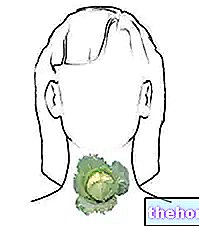What are
The term "whole foods" refers to baked goods made from wholemeal flour. Currently, these are highly sought after products, although not all consumers are aware of their importance.

Benefits and Properties
Whole food, in most cases, is nutritionally better, as it has a higher content of:
- dietary fiber
- minerals
- water-soluble vitamins of group B
The caloric intake, contrary to what is commonly believed, is not significantly lower than refined flours (the difference is a few percentage points, about 2-6%), since it is linked to the amount of starch, a polysaccharide present in similar quantities in two products.
Furthermore, the bioavailability of the minerals contained in whole foods is reduced, as they can be chelated by the phytic acid present in the fiber.
Despite this, dietary fiber, although not a nutrient, has nutritional and metabolic effects that make it a very important component of our diet:
1. Increased satiety;
2. Improvement of intestinal function;
3. Prevention of colorectal diseases;
4. Reduction of cardiovascular risk in relation to the positive effects on the metabolism of carbohydrates and lipids.
In adults, an average daily consumption of fiber of about 30g / day is recommended, through foods that are naturally rich in it. However, it should be noted that the use of whole foods without controlling the caloric intake of the diet is not sufficient to reduce the body weight; moreover, an excessive consumption of fiber can cause mineral deficiencies, especially in those subjects who follow a "low-calorie diet.
See also:
- Wholemeal or refined? Advantages and disadvantages of whole foods
- Whole grains
Whole grain bread
Problems with playing the video? Reload the video from youtube.
- Go to the Video Page
- Go to the Video Recipes Section
- Watch the video on youtube
See other wholemeal flour recipes




























